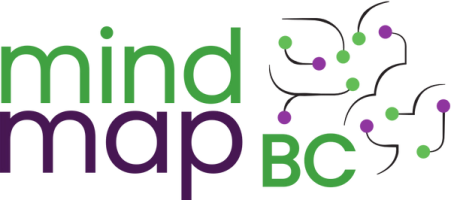Koa Counselling (Birgit Laskowski)
Summary
Individual counselling
Relationship counselling
FNHA
 Wheelchair Accessible
Wheelchair Accessible- Sensory-friendly
2S/LGBTQ+ Affirming
- In-person
Telephone
Remote services
Private practice counselling, offering counselling and therapy for individuals and couples/relationships.
Want to learn more about this service’s work with Two-Spirit, trans, LGBQ+ people?
We invite all service providers listed on MindMapBC to answer the following questions. These questions were developed in collaboration with community members, researchers, and mental health and other service providers. They're intended to help us understand what a service provider or organization is doing to affirm and support sexual and gender diverse service users.
See below for responses for this listing.
Want to learn more about our screening questions and filters?
1) Are the forms used in your practice inclusive of various sexual orientations
and gender identities (e.g. opportunities to fill in different pronouns etc.)? Yes.
2) Do you collect and use preferred names (rather than legal names) for all
communications? Yes—the name a client uses is up to them. For direct billing of insurance, I may need their legal name (or whatever the insurance provider has on file).
3) Do you and your colleagues have experience providing services that support
clients with navigating gender dysphoria*? *TransCareBC describes gender
dysphoria as a term, “intended to describe the distress some trans people
experience with relation to their gender identity, particularly if they would like to
transition but have not yet done so”. Yes, I have experience providing
counselling/therapy to clients that experienced gender dysphoria, as well as clients that have undergone transition procedures. I support my clients in clarifying and reaching their own goals for themselves.
4) Please tell us how equipped you feel to support a client in determining if/when
their mental health symptoms are related to their gender-related experiences or
other factors? I am open to exploring whether mental health symptoms are related to gender or sexuality experiences, or if there are other factors involved. My approach is an open and curious one, and I support my clients as knowing themselves best. I offer questions or exercises which help people to clarify for themselves what their priorities are and what is going on for them. I believe in a multi-faceted approach to symptoms, looking at potential physical causes (eg. low iron or thyroid issues can result in depression symptoms), situational/contextual factors (such as burnout from a stressful work environment, or living and working in a situation which doesn’t align with one’s values), lifestyle factors (quality of sleep can greatly impact mood, nutrition, activity level, social opportunities).
5) Do you/your colleagues understand the difference between gender dysphoria
and mental health conditions/symptoms that are unrelated to gender dysphoria or distress? Yes, I do not consider gender dysphoria a mental health condition, although one may experience a mental health condition along with gender dysphoria and there may be overlap (for example, symptoms of depression may arise when one is living in an unsafe environment, or not able to freely express oneself).
6) Do you and your colleagues have experience working with people who identify as living with a disability or chronic illness? Please tell us more about your experience and any training you have received. I have experience working with people who live with a disability. I have worked with a woman who osteogenesis imperfecta type III (uses a wheelchair to get around) for 10 years, as well as individuals with chronic illnesses.
7) Are you and your colleagues comfortable asking relevant questions about
gender identity and sexual orientation? Yes. I usually let my client take the lead on topics that we discuss, and then once they initiate, I am comfortable asking questions. I create safety by letting clients know at our first meeting that at any time they can choose not to answer questions or leave, I have a board with the words: “yes, no, I don’t know, stop, I want to leave” for my clients to remind them that they are in control of the process.
8) Do you offer Indigenous 2SLGBTQIA+ specific resources, for example
Indigenous Elders or Knowledge Keepers? I have an extensive set of resources, but not specific to 2SLGBTQIA or Indigenous peoples. I have completed the Indigenous Cultural Safety (ICS) training course. I will often search out resources for my clients, specific to their needs.
9) Do you and your colleagues ask clients about pronouns and use them
appropriately? I have a question pertaining to pronouns in my intake form and use the preferred pronoun of my clients.
10) Are you and your colleagues aware of what specific barriers may exist for
Two-Spirit, queer, or trans Indigenous individuals accessing your services? I am
aware of some of the barriers (in terms of comfort and safety in environment,
assumptions/biases) and try to minimize these. I am open to learning about barriers and adapting my practice accordingly.
11) Are you and your colleagues aware of what specific barriers may exist for
2SLGBTQIA+ individuals accessing your services? I am not currently aware of
barriers in my specific practice, but am open to learning of any and changing what needs to be changed.
12) Are you and your colleagues aware of what specific barriers may exist for
trans individuals accessing your services? We do not have gender neutral
washrooms in my building.
13) Are there clear anti-discrimination policies that include gender identity,
gender expression, and sexual orientation in your organization or practice? I
operate a solo private practice and I personally do not discriminate with regards to gender identity/expression or sexual orientation.
14) Are all individuals involved in service provision actively engaged in
decolonizing their practices and/or organization? If yes, please type below what
actions you and/or your organization are taking. I am currently systematically
reviewing my intake forms and resources to look at them from a decolonizing framework (in line with my training in cultural safety and awareness).
15) Are all individuals involved in service provision actively engaged in anti-racist
practices, policies, and systems in their care model? As a solo practitioner I make efforts to be aware of any biases or assumptions I may hold in regard to
race/ethnicity/ways of being in the world. I am open to discussing these and increasing my awareness.
Address
210 - 8155 Kirschner Road
Kelowna, BC
V1Y 4N7
Last updated: February 21, 2025
Request changes —

